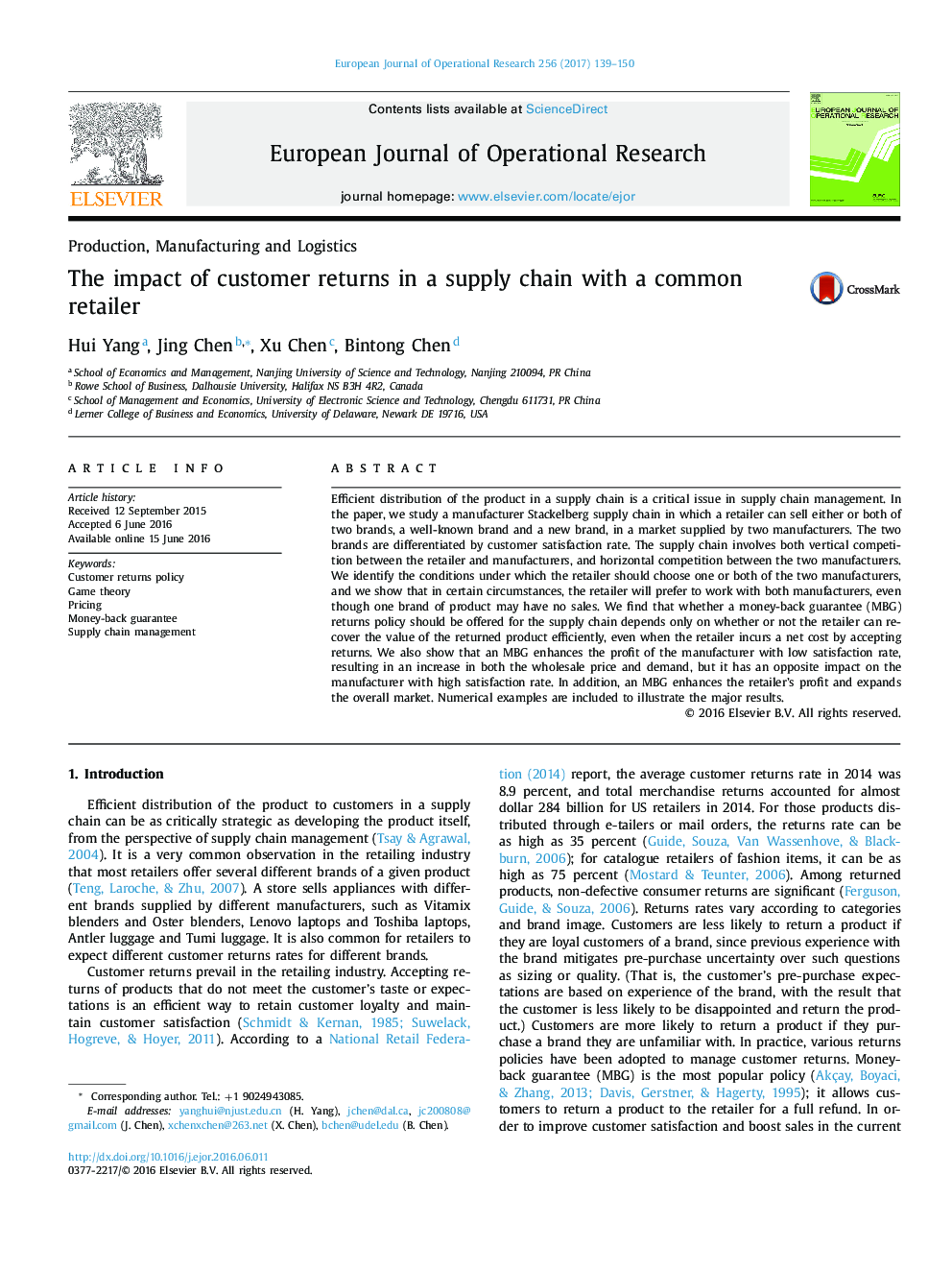| Article ID | Journal | Published Year | Pages | File Type |
|---|---|---|---|---|
| 4960095 | European Journal of Operational Research | 2017 | 12 Pages |
â¢A supply chain faces customer returns in which two competing manufacturers supply product to a common retailer.â¢We show that an MBG is an equilibrium policy in the supply chain if the net salvage value is positive.â¢MBGs benefit both the retailer and the new brand manufacturer, but hurt the well-known brand manufacturer.â¢MBGs expands the overall market in the supply chain.
Efficient distribution of the product in a supply chain is a critical issue in supply chain management. In the paper, we study a manufacturer Stackelberg supply chain in which a retailer can sell either or both of two brands, a well-known brand and a new brand, in a market supplied by two manufacturers. The two brands are differentiated by customer satisfaction rate. The supply chain involves both vertical competition between the retailer and manufacturers, and horizontal competition between the two manufacturers. We identify the conditions under which the retailer should choose one or both of the two manufacturers, and we show that in certain circumstances, the retailer will prefer to work with both manufacturers, even though one brand of product may have no sales. We find that whether a money-back guarantee (MBG) returns policy should be offered for the supply chain depends only on whether or not the retailer can recover the value of the returned product efficiently, even when the retailer incurs a net cost by accepting returns. We also show that an MBG enhances the profit of the manufacturer with low satisfaction rate, resulting in an increase in both the wholesale price and demand, but it has an opposite impact on the manufacturer with high satisfaction rate. In addition, an MBG enhances the retailer's profit and expands the overall market. Numerical examples are included to illustrate the major results.
